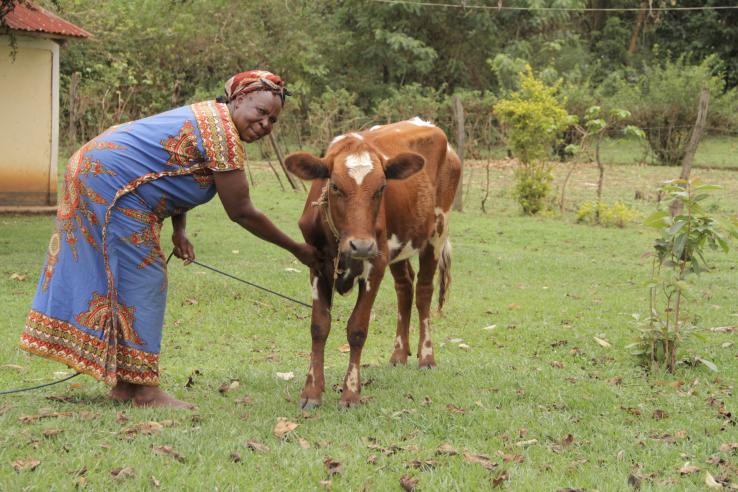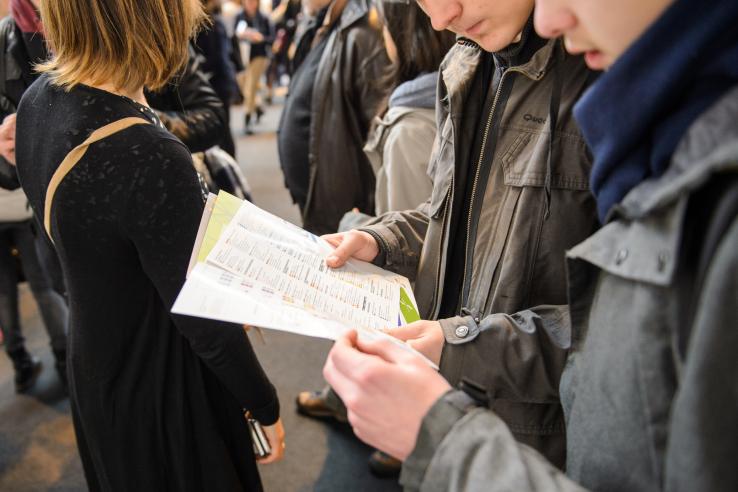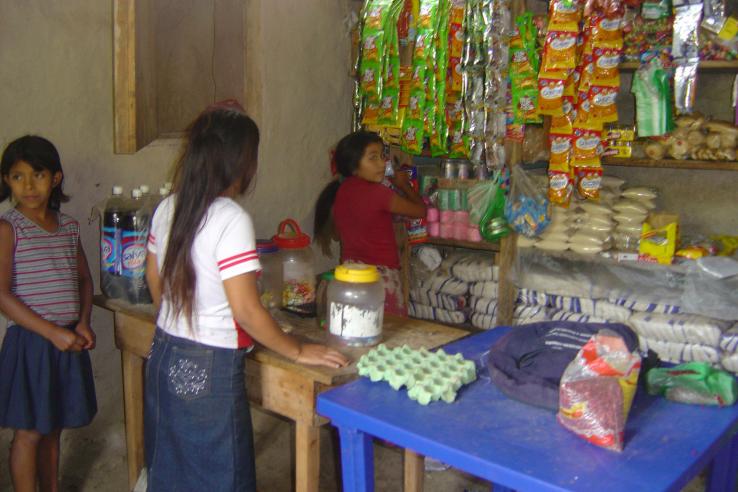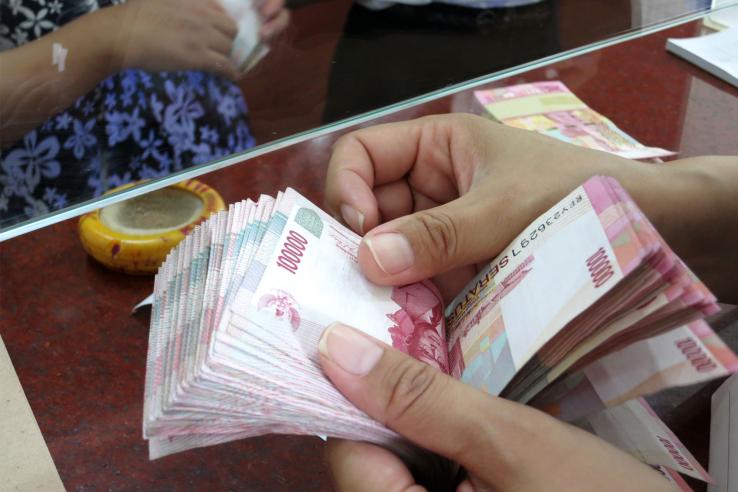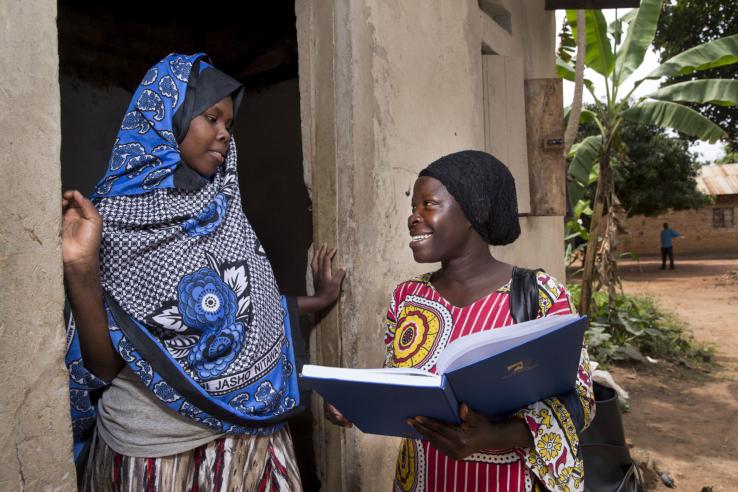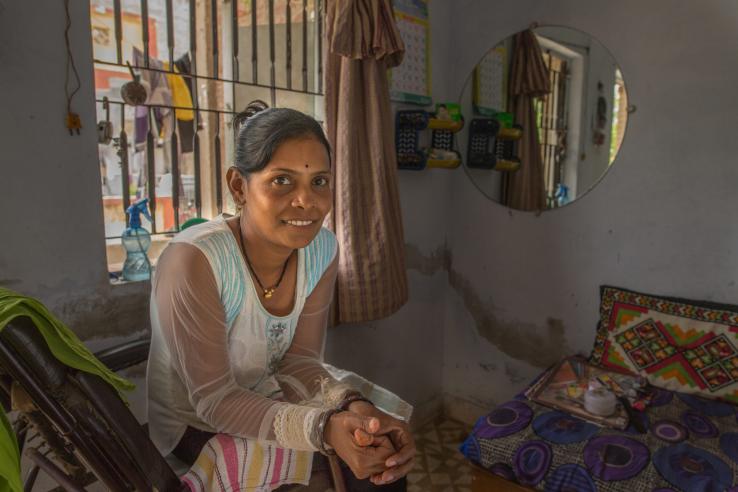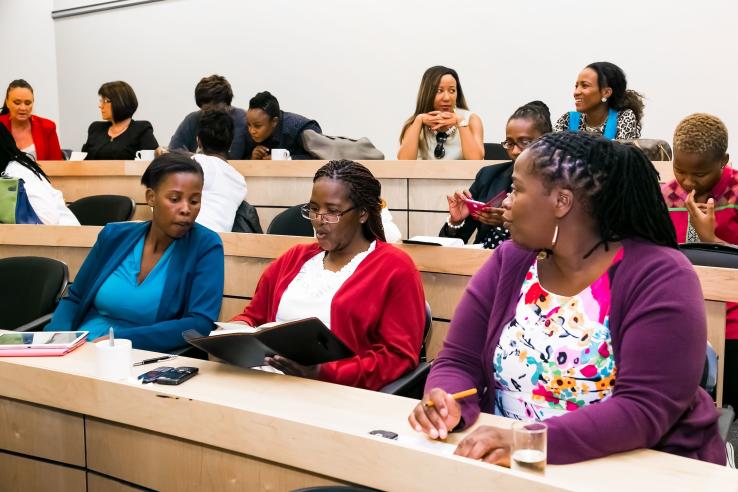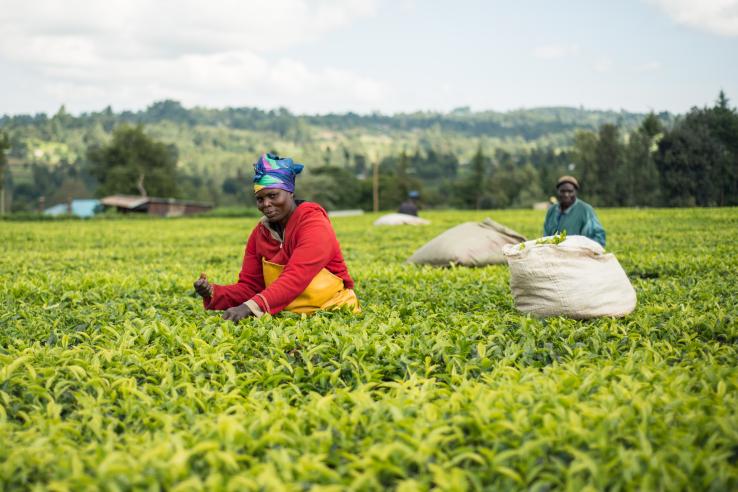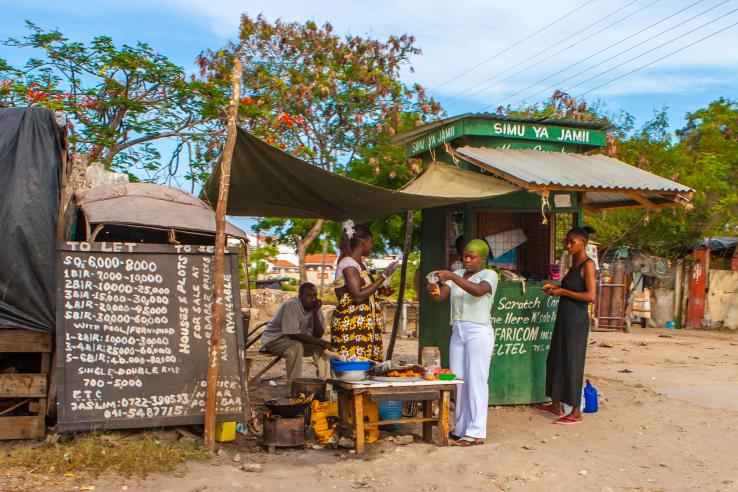Displaying 4381 - 4395 of 8489
Evaluation
The Graduation Approach, a model for holistic livelihoods programs, has been proven to have lasting impacts on poor families’ income, assets, food security, and mental health, but these programs can be expensive to implement. In Ghana, researchers are evaluating the impact of different variations of the Graduation program—without coaching visits, with cognitive behavioral therapy, without additional services, and a cash transfer only—on household income, consumption, assets, psychological health, and other measures of well-being.
Evaluation
To better understand the connection between BTB policies and racial discrimination in hiring, researchers tested the impact of applicant race and criminal history on hiring decisions both before and after BTB policies came into effect in New Jersey and New York City. The results confirmed that criminal records are a barrier to employment and supported the concern that BTB policies encourage racial discrimination.
Evaluation
Researchers evaluated the effects of an information campaign on workers’ awareness of and participation in a program that subsidizes skills-building training in Germany. Results showed that the information campaign doubled workers’ awareness of the program on average, but had no effects on program take-up or on labor market outcomes one to two years later. However, the campaign was successful in encouraging participation in other non-subsidized training services among workers aged below 45 years old.
Evaluation
In Nicaragua, researchers analyzed the impact of a conditional cash transfer program on the distribution of child labor within households. In households that randomly received a conditional cash transfer, older boys and boys who were behind in school spent significantly less time working each week. Girls did not work fewer hours, but their work shifted away from agriculture and towards domestic activities.
Evaluation
Researchers worked with Bank Rakyat Indonesia and the Microfinance Innovation Center for Resources and Alternatives to measure the impact of incentives and financial education on savings account take-up. Results indicated that the financial education program was not an effective tool for promoting the use of bank accounts, but modest financial subsidies did increase the share of households that opened a formal savings account. Overall, these results suggest that take-up of formal financial services may be more easily achieved through measures designed to reduce the price of financial services, rather than through large-scale financial literacy education.
Evaluation
Researchers partnered with the Bavarian State Opera House in Germany to evaluate the impact of a variety of communications strategies on the frequency of donations. They found that including a pre-filled bank transfer form in the letter substantially increased the response rate, perhaps because this lowered the effort required to make a donation. Providing non-responsive donors with a reminder to donate also proved relatively effective, but featuring slogans prominently on envelopes had no effect.
Evaluation
In northern Uganda, researchers found that free distribution of three health products led to lower demand for the same products when they were later offered for sale, highlighting the importance of product characteristics in determining pricing policy.
Evaluation
Subsidizing entrepreneurship training in the United States did not improve access to training services or promoted employment among groups affected by discrimination.
Evaluation
The researcher conducted a randomization in rural Odisha in India, by comparing adoption of a new seed variety through farmer-to-farmer networks in one half as benchmarked by door-to-door sales of the same seed. Trading between farmers leads to substantial under-adoption of agricultural technology relative to the door-to-door sales. Diffusion is partially but not fully explained by social networks.
Evaluation
The researcher evaluated the impact of providing eligible women with program information and various levels of application assistance for the Delhi Widow Pension Scheme on program knowledge, application completion, and enrollment. Offering more involved application assistance increased average application rates, particularly among more vulnerable women.
Evaluation
Researchers leveraged existing randomization to evaluate the impact of ERA programs during the pandemic in four urban areas in the United States on measures of housing stability, financial security, and mental health. Receipt of rental assistance increased rent payment in the short term and modestly improved self-reported mental health. However, it had limited impacts on housing stability and financial security.
Evaluation
Researchers investigated whether a financial literacy program improved financial knowledge and practices, and increased financial service use among low-income individuals in South Africa. Offering a training improved knowledge about budgeting, increased self-reported savings, and reduced loan applications but the evaluation did not detect other significant improvements in financial knowledge or practices.
Evaluation
In Kenya, researchers assessed the impact of training farmers to verify seed quality on their seed purchasing decisions and productivity, and the responses of seed markets to these changes. Trained farmers became better able to detect seed quality, more selective about where they bought seeds, and experienced higher yields. Sellers, however, did not improve seed quality or adjust their prices in response to the shifts in farmer demand, possibly due to the high cost of doing so. Instead, many opted to exit the market.
Evaluation
Taking advantage of a pre-existing large-scale evaluation of a universal basic income project in Kenya, researchers measured how different types of cash transfers impact recipients’ income, reported well-being, food security, mental health, and social interaction in the context of the COVID-19 pandemic and the accompanying agricultural seasonality. Researchers found that although the income gains from small businesses started before the pandemic were wiped out, transfer recipients experienced modestly better food security and physical and mental health than those who had not received transfers, along with some positive impacts on public health indicators.
Evaluation
In partnership with Simón de Cirene, a Chilean non-profit organization, researchers evaluated the impact of providing role models and personalized assistance through various delivery methods on the business outcomes of micro-entrepreneurs. One year after the program ended, household income increased for individuals assigned to receive a role model or personalized assistance.
